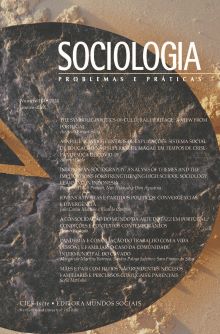A política simbólica do património cultural: o caso português
DOI:
https://doi.org/10.7458/SPP202410431194Palavras-chave:
património cultural, políticaResumo
O artigo sublinha a centralidade da representação social do património cultural para a legitimação simbólica de um regime e a fundação das suas políticas sociais e culturais. A relevância atribuída à história, a sua codificação enquanto património e a formação de uma memória coletiva são arenas de prática social, poder e hegemonia. O caso português é um bom exemplo, permitindo comparar as visões contrárias do regime autoritário de Salazar e do regime democrático. Analisamos como a democracia portuguesa reconstruiu um consenso nacional em torno da interpretação da história e identidade nacional; consideramos o papel da nova interpretação na redefinição do lugar de Portugal no sistema mundial; e esboçamos algumas conclusões mais gerais.
Downloads
Publicado
Edição
Secção
Licença
Autores que publicam nesta revista concordam com os seguintes termos:
a. Autores conservam os direitos de autor e concedem à revista o direito de primeira publicação, com o trabalho simultaneamente licenciado sob a Licença Creative Commons Attribution que permite a partilha do trabalho com reconhecimento da autoria e publicação inicial nesta revista.
b. Autores têm autorização para assumir contratos adicionais separadamente, para distribuição não-exclusiva da versão do trabalho publicada nesta revista (ex.: publicar em repositório institucional ou como capítulo de livro), com reconhecimento de autoria e publicação inicial nesta revista.



